What is Search Engine Marketing?
Search Engine Marketing (SEM) is the process of Generating Traffic to a Website through Paid Ads that appear on Search Engine Results Pages (SERP),
Search Engine Marketing is a big part of Digital Marketing where brand pays to put their ads online.
Search Engine Marketing (SEM) ads are the ones that appear above or below the regular Search Engine Results Page in a Search Engine Results Page (SERP).
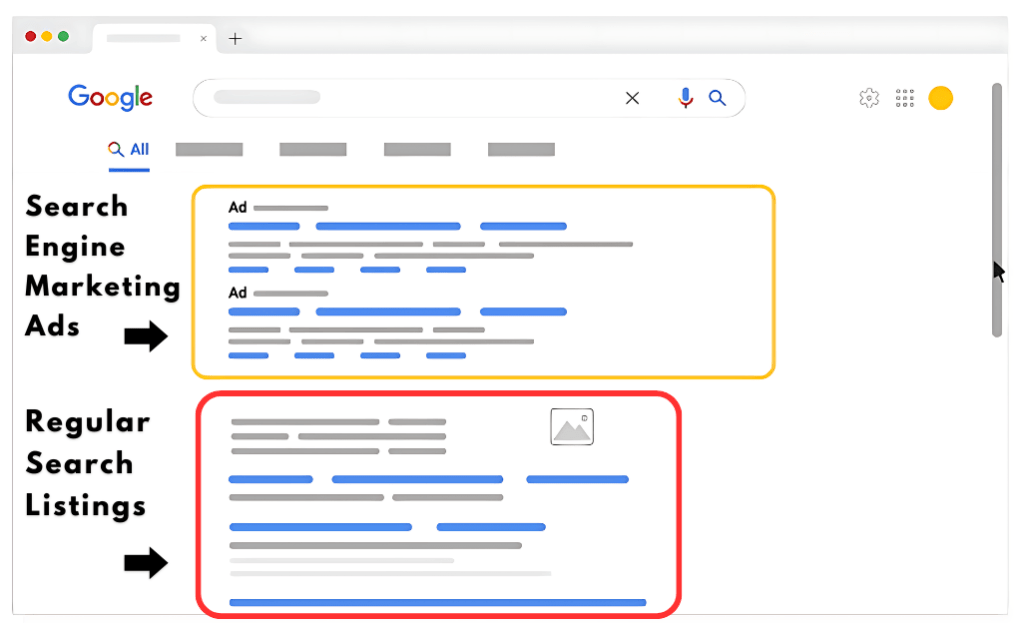
How Search Engine Marketing Works?
Search Engine Marketing (SEM) Primarily Operates on Search Engines like Google, Bing, and Yahoo, When someone Searches for a keyword related to their business. Search Engine Marketing (SEM) ads help Businesses to show highup on Search Engines.
Did you know? 81% of people head straight to search engines whenever they’re curious about a product or service, or when they’re ready to buy, and here’s a little fact: 14.6% of those shoppers will click on a link from the search results pages ended up buying something. It’s like finding the right path in a maze that leads directly to the treasure – a successful purchase!
Remember, SEM is the most effective and commonly used on search engines, It’s also a digital marketing strategy that aims to increase a website’s visibility in Search engine results pages (SERPs) quickly through Paid advertising, and you can also appear on Search Engine Result Pages through Search Engine Optimization (SEO), but SEO takes time to appear on Search Engine Results Pages within Search Engine Result Pages.
Search Engine Optimization VS Search Engine Marketing
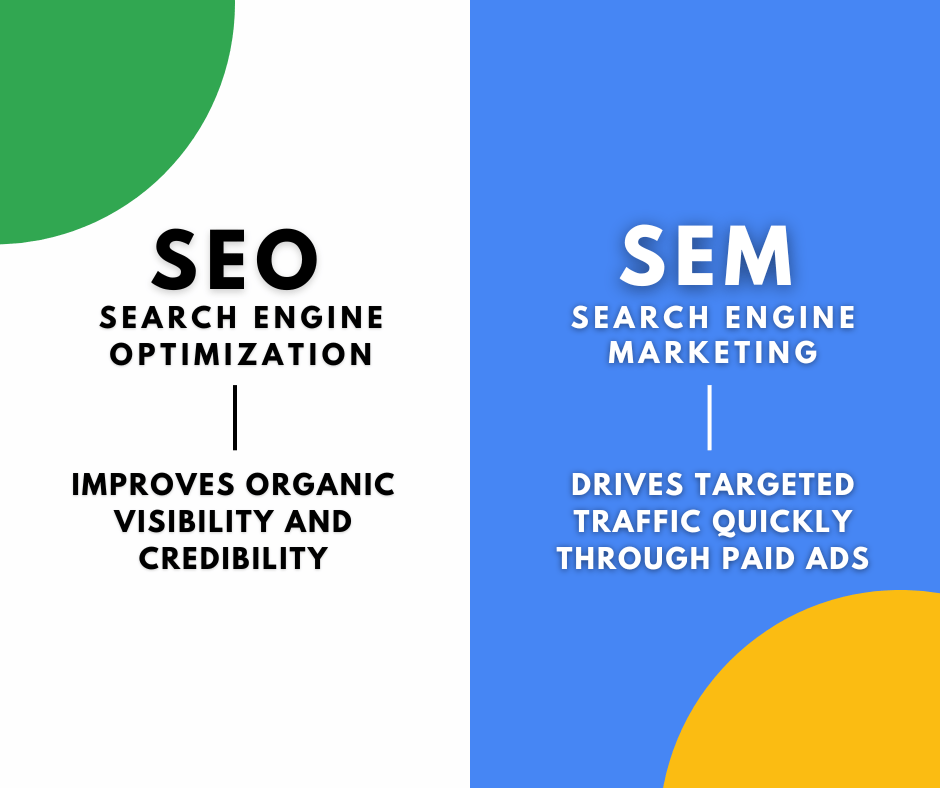
SEM (Search Engine Marketing) is like the express lane at the supermarket. You pay a fee, and you get to jump ahead in line – or in this case, to the top of search results with ads that pop up when customers search for keywords related to your business.
But, SEO (Search Engine Optimization) is the marathon runner of the internet world. It doesn’t rely on paid ads but instead of this, it earns its spot in the search results through relevance. It’s all about crafting useful content that’s so spot-on for certain keywords that search engines can’t help but show it off, free of cost.
Both SEM and SEO are the dynamic duo of your Online Strategy. Brands focus on SEO to attract more customers and keep generating traffic and keeping your brand in the right spot on the long-term game free of cost,
while SEM is used for driving those quick, ready-to-act clicks. Remember together, they’re your one-two punch for online success, from awareness right down to the point of purchase.
Basic Needs of Search Engine Marketing & Search Engine Optimization:
Keyword Research
Search engine marketing starts the same way that Search Engine Optimization does: with keyword research.
So, if your company sells vitamins you might want to serve an ad to customers who search for the phrase “vitamin C.”
Once you have your keywords you enter an ad auction to bid on them. An ad auction is how a search engine determines which ads to display, and the order they’re shown when someone performs a search.
When you bid on a keyword, you decide how much you’re willing to pay when someone searches for a term and clicks your ad. This is known as Pay-per-click, or PPC because you pay only when someone clicks on your ad. The amount you pay when someone clicks on a PPC ad is called the Cost-per-click, or CPC.
Now just like in every other auction, it’s possible to lose your bid. That means your ad won’t come up every time someone searches for your keyword. Search engines decide which ads to display based on factors like quality and maximum bid amount.
Advantages of Search Engine Marketing (SEM)
1. Google processes over 8.5 billion Searches every day, Which equates to 6.3 million searches per minute. This number of searches represents a great opportunity for businesses to capture their targeted audience’s attention through Search Engine Marketing Ad’s.
2. Google continues to dominate the Search Engine Market with an 82% Share of Desktop Searches as of December 2023.
This highlights the importance of focusing Search Engine Marketing efforts on Google’s platform.
3. Remarkably, 86% of all Advertising Impressions are attributed to the First four Search Results.
So Businesses can show their Paid Ads above the Regular Search Engine Results Pages on any Search Engine and Score a good amount of Sales.
4. Remember Search Engines Drive 300% more traffic to sites than any other social media does,
So it’s a Great Opportunity for Businesses to Spend more on Search Engine Marketing.
5. One of the biggest benefits of Search Engine Marketing is that it creates opportunities for remarketing,
Remarketing allows you to Identify Previous Customers or Visitors of your Website and Serve them Paid Ads on their Sites and Social Media Platforms.
6. Remarketing Recaptures the Attention of People who showed interest in your brand but didn’t complete an action, like purchasing. It works by reminding them of your product as they browse other sites.
This is crucial because most visitors leave before buying. Remarketing encourages them to return and is highly effective since past visitors and customers are the most likely to convert. These reminders can significantly boost conversions.*
Conclusion:
Search Engine Marketing is a way for Brands to Generate traffic to their Websites by Placing Paid ads on Search Engine Results pages.
It uses a model called Pay-Per-Click advertising,
which Charges you when someone clicks on your ad.
Paid ads have some big advantages like reaching customers quickly, controlling where visitors land on your site, and remarketing.
Got Questions? Let’s Dive In!
If you have any questions on your mind, don’t hesitate to drop your questions in the comments section.
Join my Digital Marketing Circle
Hey there, I run a WhatsApp community where I share the latest trends and insights around digital marketing. If you’re keen on staying ahead of the curve, join us here and be part of the conversation.

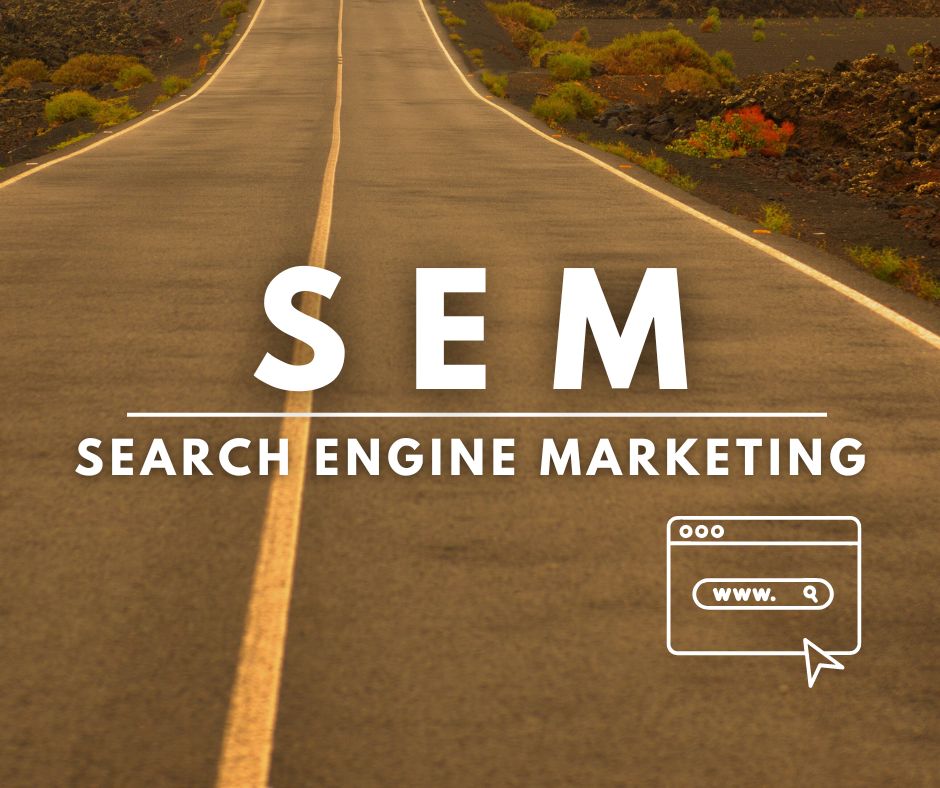
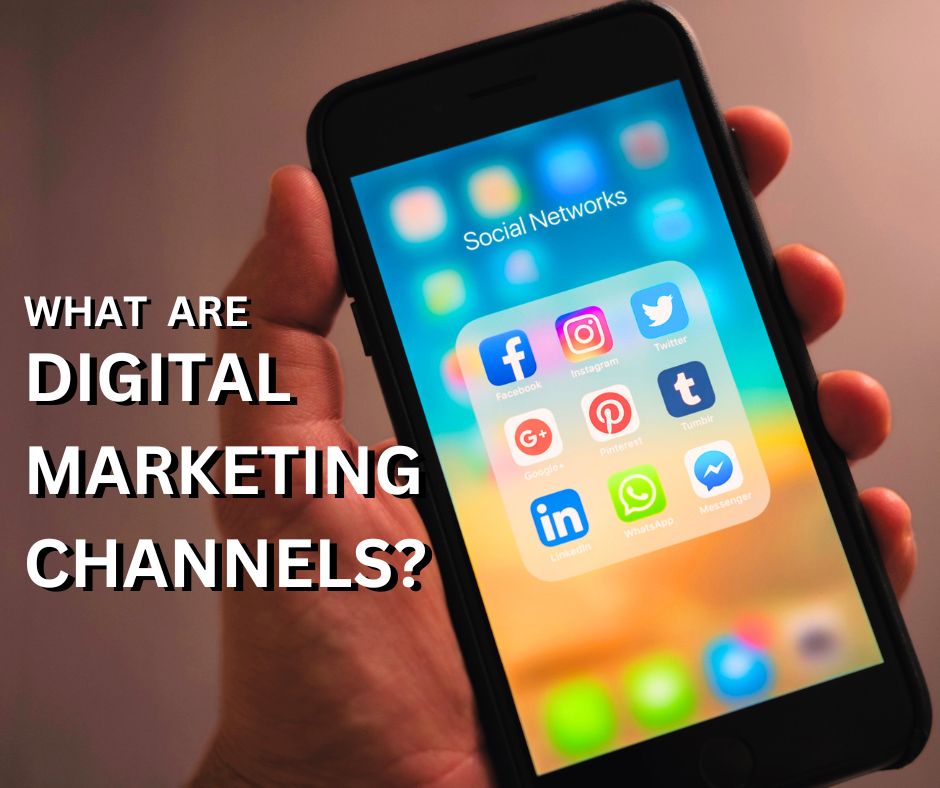
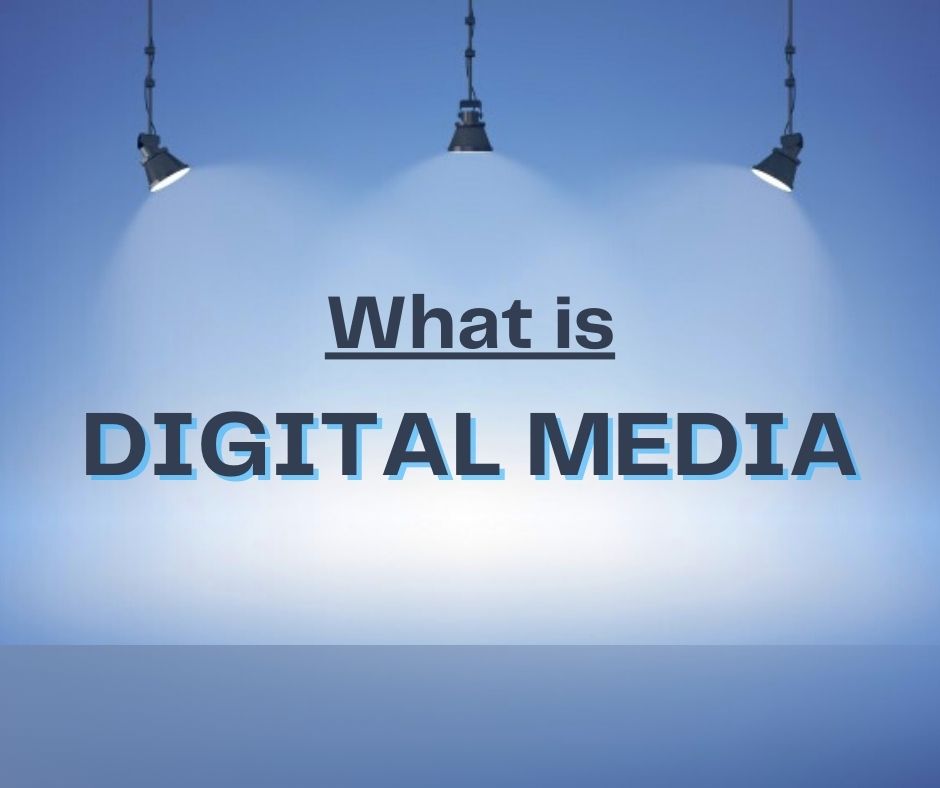
The article on content optimization was incredibly detailed.
Your blog made understanding email marketing so simple.
I’ve been learning so much from this blog, and I truly appreciate the helpful content shared here.
This post help me understand search engine marketing easily, thanks mr arham